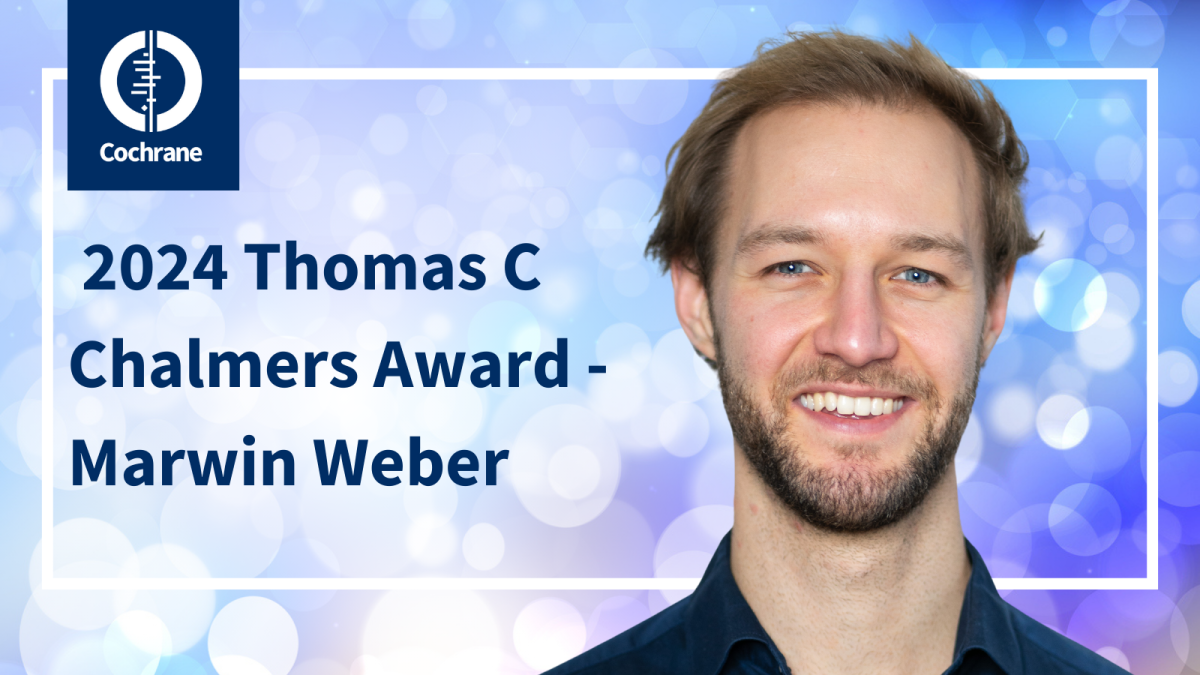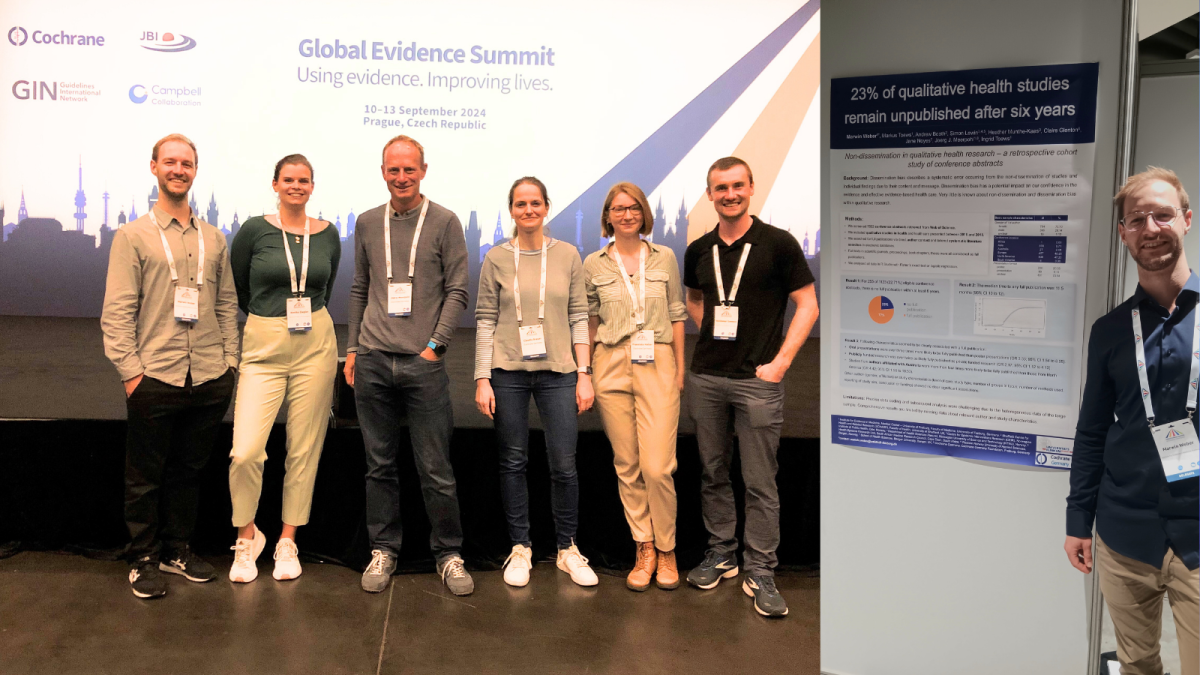
Dr Thomas Chalmers was an outspoken advocate of randomised trials, whether at the bedside, at professional meetings, in class or in situations pertaining to his own life. His creativity spanned his entire career, influencing clinicians and methodologists alike. He is perhaps best known for the notion ‘randomise the first patient’, his belief that it is more ethical to randomise patients than to treat them in the absence of good evidence. In his later years, in arguably his most important work, Tom and his colleagues showed that had information from RCTs been systematically and cumulatively synthesised, important treatments such as thrombolytic therapy for myocardial infarction would have been recognised as useful much earlier.
The Thomas C Chalmers Award was initiated by Tom Chalmers himself and further supported with individual donations from friends and family to celebrate and recognise Tom's interests and achievements. The prize is awarded to an early career investigator presenting on methodological issues at the Cochrane Colloquium. The presentations must demonstrate originality of thought, high-quality science, relevance to the advancement of the science of systematic reviews and clarity of presentation.
The Thomas C Chalmers Award for Best Poster Presentation goes to Marwin Weber, Research Assistant at the Institute for Evidence in Medicine at the University of Freiburg.

Marwin won for his poster presentation called 'Non-dissemination in qualitative health research – a retrospective cohort study of conference abstracts'
Background: Dissemination bias describes a systematic error occurring from the non-dissemination of studies and individual findings due to their content and message. Dissemination bias has a potential impact on our confidence in the evidence and effective evidence-based health care. Very little is known about non-dissemination and dissemination bias within qualitive research.
Methods:
- We screened 7502 conference abstracts retrieved from Web of Science.
- We included qualitative studies in health and healthcare presented between 2016 and 2018.
- We searched for full publications via direct author contact and tailored systematic literature searches in electronic databases.
- Full texts in scientific journals, proceedings, book chapters, thesis were all considered as full publications.
- We analysed all data in R Studio with Fisher’s exact test or logistic regression.
Results:
- Result 1: For 255 of 1123 (22.71%) eligible conference abstracts, there is no full publication within at least 6 years.
- Result 2: The median time to any full publication was 11.5 months (95% CI 10 to 12).
- Result 3: Following characteristics seemed to be clearly associated with a full publication:
- Oral presentations were over three times more likely to be fully published than poster presentations (OR 3.33; 95% CI 1.54 to 8.05).
- Publicly funded research was over twice as likely fully published as private funded research (OR 2.17; 95% CI 1.12 to 4.13).
- Studies from authors affiliated with Australia were more than four times more likely to be fully published than those from North America (OR 4.42; 95% CI 1.56 to 18.53).
- Other author-(gender, affiliation) or study characteristics (level of care, study type, number of groups in focus, number of methods used, reporting of study aim, conclusion or funding) showed no clear significant associations.
Limitations: Precise data coding and subsequent analysis were challenging due to the heterogeneous data of the large sample. Comprehensive results are limited by missing data about relevant author and study characteristics.

We interviewed Marwin to gain insight into his thoughts on the significance of this prestigious recognition.
Can you briefly summarize what your poster is about?
Dissemination bias describes a systematic error occurring from the selective non-dissemination of studies and individual findings. Given its evidently harmful impact in quantitative research dissemination bias is relevant to consider in qualitative research as well. It is, therefore, also a candidate component of the GRADE-CERQual approach for assessing confidence in findings from qualitative evidence syntheses. However, very little is known about non-dissemination within qualitative research. Therefore, we aim to quantify the extent of non-dissemination of qualitative studies and identify the factors associated with it.
In this particular research, we followed conference abstracts of health-related qualitative studies and used systematic literature searches to identify any full-publications of these studies. We found that almost one-quarter of these qualitative health studies remained unpublished within at least 6 years. Furthermore we came across methodological challenges and limitations in conclusively identifying non-dissemination of studies.
What does this award mean to you personally?
First and foremost, I feel very fortunate to conduct this research together with excellent, reliable, appreciative and helpful colleagues. This achievement would not have been possible without them.
Personally, I feel honoured, especially as I consider myself a novice in this field. This recognition helps me to put prior uncertainties regarding decisions into perspective. I hope to use this validation as a foundation for my future research work. Additionally, I believe this award provides a valuable opportunity to highlight the importance of this topic.
Do you have any advice for colleagues considering entering for this award in the future? Any tips for their presentation or poster?
I would suggest gathering as much helpful input and opinions from trusted colleagues as possible, and then having the courage to make decisions.
For me, it was beneficial to scrutinize every aspect of the research and its methods very critically in order to truly understand this complex topic and to be able to discuss the study with others.

